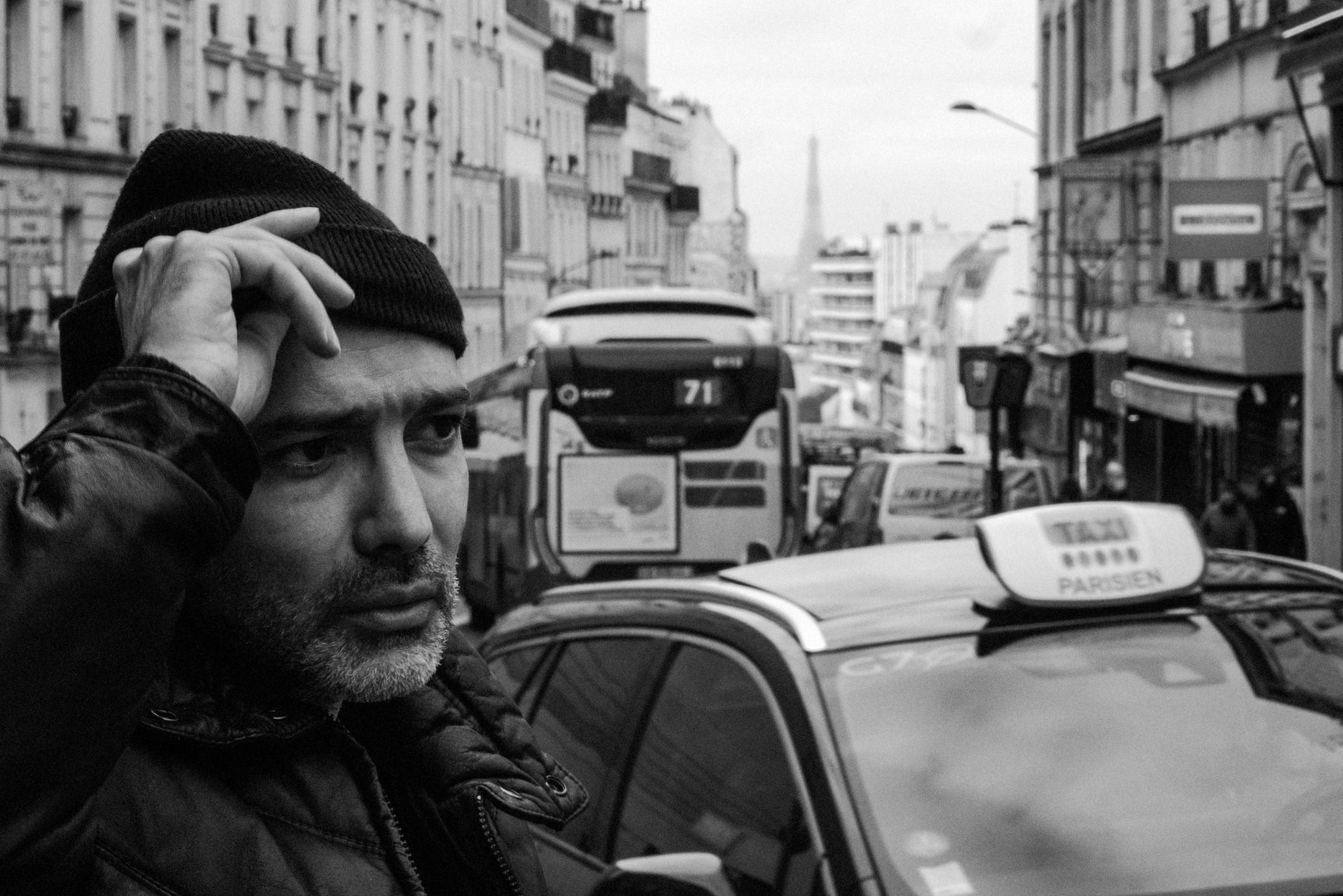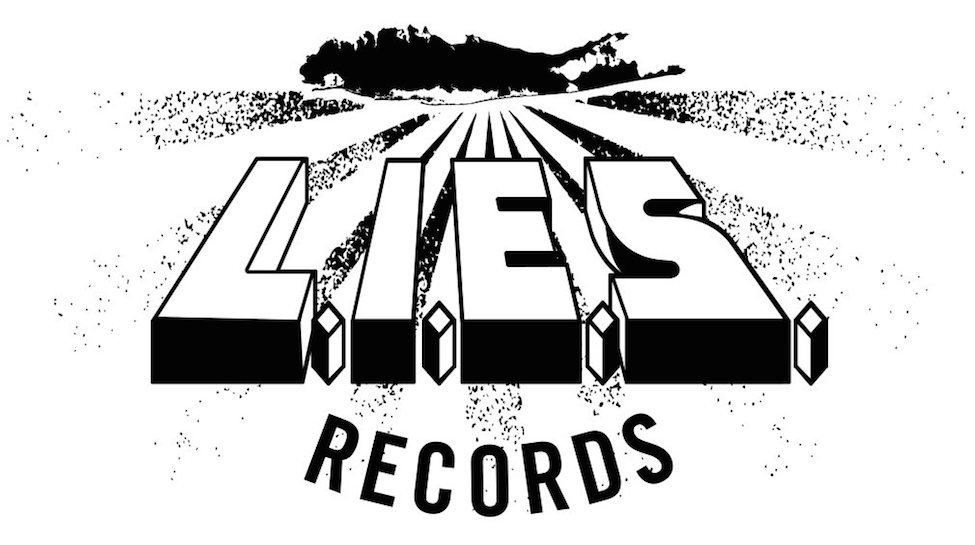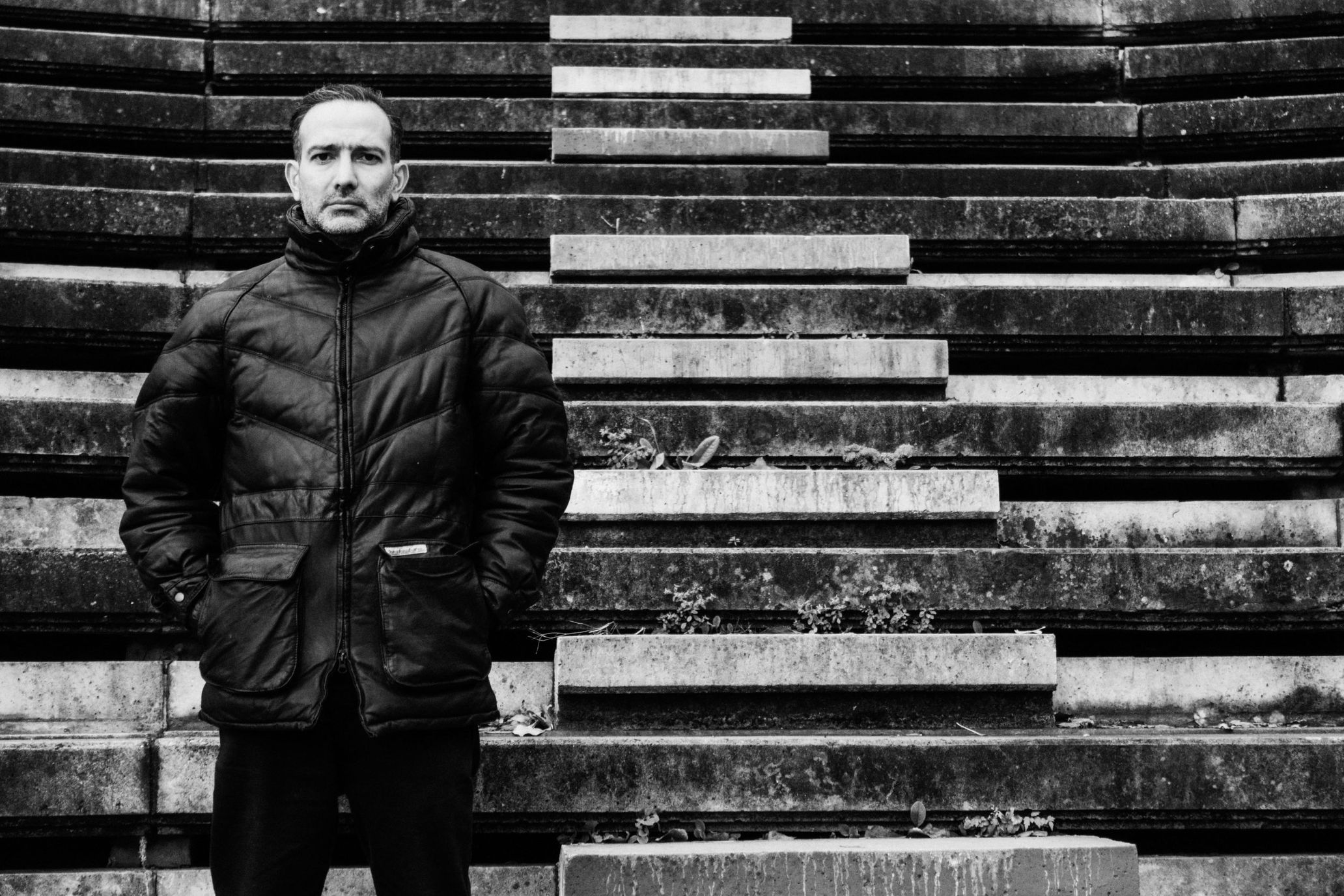Ron Morelli, a producer and DJ, is someone who has been deeply involved with music for many years in various ways. In 2020, even though it was a very difficult year for the music industry, he released the album Betting On Death from Hospital Productions; and his record label, L.I.E.S. (Long Island Electrical Systems), which celebrated its 10th anniversary last year, has released 20 titles. Over the years, L.I.E.S. has helped build the careers of many artists including Delroy Edwards, Svengalisghost, Beau Wanzer, and Tzusing, as well as re-introducing already established artists such as Legowelt and Broken English Club (Oliver Ho) to a new audience. This is the first half of an extended interview with the New York-born Paris-based artist, in which we talk about his perspective on the label and his relationship with the Japanese culture and music(Part I).
Footprints from before establishing L.I.E.S. Records
――I’m surprised that you haven’t done any proper interviews with Japanese press before.
Ron Morelli (Hereinafter Ron): No, except I think I did something very short for Resident Advisorr’s Japanese website right before the first time I went to Japan. I know TOKION from the 90s. They used to have a lot of parties in New York. Maybe they even had an office in New York at that time, like around 1999.
――Ah that’s cool! Yes, it used to be a monthly printed magazine back then. I also didn’t realise it was L.I.E.S.’ 10th year anniversary last year until you mentioned. What was your initial motivation for starting L.I.E.S., and how do you look back on the past 10 years?
Ron: When I started the label in 2010, I had already been deeply involved in music my entire life. And previously, in the early 90s, I ran a very small punk label, just putting out two or three releases. And then in the late 90s, I, I did another kind of very small label, also with only two releases, putting out this kind of independent hip hop artist. So, I already knew how to press records. And then I guess I would say from 1999 to 2010, I had no real desire or stopped trying to run another label. It wasn’t really on my mind. But around that time in 2008 or 2009, I had this crew of people around me all producing music, and they had no real outlet for it. Their music was just kind of sitting around. At that time, my roommate had started a label, and I said, “well, maybe it could be interesting to take a shot at doing this again, because I have all these people around me, and it could be really cool to just start slowly on a really small level, putting out some releases and see what happens.” So, there was never a grand, big plan ahead of time or anything like this. It was very organic. And the network of people that we ended up working with became bigger in Brooklyn at the time, and you know, we kind of inadvertently created a scene at this time in New York.
It was a really interesting time. A lot of things were changing in New York. By then, all the main clubs had closed, but some new clubs and bars, where we would play a lot, opened up. And there were a lot of illegal warehouse spaces at the time too, that you could do gigs. So yeah, it kind of just took a life of its own. And after, I guess, the first three years, the label started getting international attention. With that, many of us started touring overseas. And there was even a newer scene in Brooklyn at the time, so after four or five years after the label started, we were like kind of the old guys already. I moved to Paris in 2013, and then it really became less focused on the small scene in Brooklyn. For me, it was especially important if I wanted to keep the label really going and moving, to be consistently out there and to be on the road, and to not just be in one spot. I could have very easily stayed in New York, I had a very comfortable job working at A1 (Records) as you know— it was a really good schedule, and I enjoyed the work and the people. But I had always the urge to leave New York as well and this was the time to do it.
To answer the second part of the question, because there was never a main goal with the label, I think we were just very happy to get the music out there to people, and to have anybody actually listen to it and check it out. As time goes on, of course, you want to challenge yourself. And as time went on, maintaining the label also became more challenging, because obviously, you don’t have the attention that you had in the beginning. That’s only going to happen once. And then people move on very quickly. I always say this, it’s not like in the 80s, or even in the early 90s, when you would be interested in a label or a band or like a group, and you would be waiting on the edge of your seat to hear the new release for two or three years. I don’t think music works like this anymore. It’s like a pinball, people bounce from one to the next to the next. That’s just how it is. So as the label goes on, you have to keep people interested. I mean, I never make a decision about the label based on other people’s reactions, it’s always for me, and it’s always for the artists. I think we put out quite challenging music that’s not for everybody. So, it is always about pushing myself, and making it interesting for me.
L.I.E.S. is the record of my own life
――To me, it’s clear if I look at the catalog, that your label is very personal. And it seems that your personal attachment or relationship with the artists (rather than the trends of the market) are much more important. It is a very personal label. So I assume it’s not like people send in demos, and you just pick what you like?
Ron: It’s never been that way. We never take unsolicited demos ever. It doesn’t matter if it was the best demo in the world. I have to have some sort of feeling for the person and to know what they care about. For me, this label has been a document of times also in my life. For example, I just ended up putting out a lot of records from French artists last year. It also reflects where my life is at that way.
――I was just remembering as you said, that the dance music and club scene in New York was stagnant in the 2000s. There weren’t really any clubs or labels that had that much influence. L.I.E.S. kind of came into that void and established a new sound.
Ron: It was a very strange time in New York. As many people know, in the late 90s, when Giuliani came in: he kind of cleaned up the whole city. They cracked down on clubs and quality of life offenses, and that really caught into the underground. And even the mainstream clubs. And then of course, 911 was kind of the final nail in the coffin. So, there was no real scene, like there was in the 90s with like, the real New York club scene after disco, with you know, Strictly Rhythm, Masters At Work, Frankie Bones and Todd Terry… the real underground scene at the time. And then the digital age kind of comes in, so the record stores and distributors also started to close. So, there was this gap in music culture— I don’t think there was a lack of people interested in it, and I don’t think there was a lack of people who had a desire to make music, but it was just very tough as there was no infrastructure left.
At that time right before the label started, the big thing in New York was the disco resurgence and edits. There was great, great stuff, but there was not a label putting out original tracks by contemporary artists that were cutting edge in nyc. I think we were just at the right place at the right time. It just all came together, somewhat perfectly. It just clicked. I was very hesitant to say this for years, but looking back, I do think people got behind the label. And we did kind of created —and it’s a bold statement to say— a new scene, in the city at the time. I still work with many of the original artists on the label, but also you don’t want to keep repeating the same thing over and over again. So, as time goes on, you want to push the sounds, you want to push yourself, and discover new things to keep it fresh. Again, because people’s attention moves so quickly, no matter how good the music is, unfortunately, it’s very disposable at this point.
――Would you say you take pleasure in introducing new people that nobody really knows yet? Because I personally do. And I get more excited writing about people or music people don’t really know yet.
Ron: Yeah, it’s always really cool to present a new story to people that they don’t know. The music— I hate to say that it’s secondary, but people seem to be more interested in a story. We all like to hear the colorful stories behind the music.
――You’ve worked at A1 Records, which is a secondhand record store. In this type of shop, people come in to find hidden gems. You need to be into that yourself to work in a shop like that.
Ron: Yes, it’s a “specialty” shop. They don’t want to know what’s on the shelf. They always ask what’s behind the counter!
――Do you have anyone else working beside you for the label? Or is it a one man operation? Do you decide what comes out by yourself?
Ron: No, I don’t. I used to have my friend John assisting me with just technical back end aspects like shipping and stuff. And I have some people in New York doing shipping but that’s really it. It’s just me. I do everything from the bills to the emails and all the dirty work. [laughs]
――So, I suppose how you decide what’s appropriate for the label is all about whether you like it or not. Do you ever question yourself or your own judgment though? Or do you have some sort of unshakable criteria established from your experience working at a specialty store like A1 Records, which is far removed from the general market?
Ron: I think the main thing that informs me what I’m putting out, is the very simple fact of just being deeply interested in music since before I was a teenager. At the end of the day, I’m just a fan and a fanatic for all different types of music. And I’m always curious to hear new things. Now I’m in my 40s, and after listening to so much different stuff all these years, I’m even curious about what I don’t like. I ask myself, “Why don’t I like this?” Because in the past, there was stuff that I really didn’t like, for example, vocal house. I said, “I can’t. This is like, over the top for me.” And then like three years later, finding the right records, everything kind of clicks, you know. So I think the real thing that informs me is just having true curiosity about all different types of music, and keeping an open mind to it. Some stuff you hear, and you just know you’re not gonna like it. I mean, that’s just how it is. The most curious music always ends up being the stuff that you might say, “Do I like this? Is this the best thing I’ve heard in the world? Or is it the worst thing I’ve heard?” And that’s when you reach an interesting area, sometimes. It’s almost bad if you don’t get a reaction out of music. When you’re like, when you hear certain forms of techno that you’re just like, “yeah, it’s just a normal techno record.” It’s almost an insult. It almost makes it disposable. But then you have a perfect example— I just heard the new Terrence Dixon LP (From The Far Future Pt.3/ Tresor), and this is sonically a techno record, but he made it extremely personal. And you know it’s his music, because his sound is so identifiable. You would never just say, “Oh, that’s just a normal techno record.”
Working at the record shop, I always said to myself, “you have to be very humble.” When I go through used records, I would see all these records and say, “this distributor is closed”, “this label is closed”, “this artist doesn’t exist anymore.” There’s a reason that certain things don’t last forever. There were certain times when I would look at something, and I’m like, maybe this label was so limited in itself to a certain thing and its time expired. I don’t say that I want to do the label forever, and at one point, maybe I’ll just decide it has to stop, but that’s something I learned and always keep in mind.
Impact from Covid and the music scene in the future
――And last year was… very different from other years. Basically, all the physical music activities just stopped. In my case, pretty much everything I was doing just stopped completely, but you on the other hand had managed to release 20 titles! How are you coping with the current situation?
Ron: Well, yeah. Obviously, it didn’t go as we planned. We had very big label tours and showcases planned for the whole year, and we were able to do just one of them in Athens. I’m always putting out a lot of releases every year, but last year, because we’re going to be touring a lot, we thought we can do a lot of really cool, special special stuff, with the records. That’s why it was also cool to put out a lot of the French guys as well. We were gonna plan on doing some special stuff here in Paris and in other parts of France, and it just obviously blew up in all of our faces. It’s been very hard. Thankfully, the fans have supported the releases, and so far, we’ve been able to break even on everything. And I’m just happy if we could make it through and keep going. But I think the next five or ten years is going to be very tough. I don’t think I’ll do 20 records this year. I want to make less and try to just step away just a little bit and be sure because you know how fragile this economy of music is. Everything can go away very quickly. If all these clubs stay open, it will be like a gift from God. I don’t know if they can.
――Are there anything that you realised/ learned last year, or anything you want to change in what you do/ how you do things from this year on?
Ron: I just think it reinforces what I’ve always felt, which is to only rely on yourself. It shows how important it is what you’ve built on your own, and to always stick with that. Because I think in a situation like this, it stands out even more and more. One of the things with this touring world in this kind of electronic music scene is that you get consumed by it, and I’m guilty of it as well. It’s very easy to get sucked into being on tour 24/7 all the time. You become mechanical in what you do. And in it, I never lost sight of it, but it reinforced the fact that it’s always important not to lose your own personality. Let’s be honest, this scene is extremely competitive. And I think there’s a lot of pressure to always be visible and to always be out there. And last year gave me more confidence to say, “you know what, you could still do your thing and not have to have your face all over in this strange scene.” I’m part of it, but I also feel extremely uncomfortable and disconnected sometimes. I do love traveling, playing and going to new places. But I have the time now to actually breathe and not feel like I’m running myself into the ground. So hopefully, I find my own pace and kind of stick to it, instead of being driven by all these pressures.
※Continues to the last half part
Ron Morelli
Hailing from Brooklyn, New York, he started his own record label L.I.E.S. Records in 2010 while working at A1 Records: an established used record store in Manhattan. Through the label, he has introduced numerous new talents in the local scene, and established new sounds which came to be known as “raw house.” After relocating himself to Paris in 2013, he continues to explore left-field electronic music with wider perspective. As a producer, he has released five albums on the noise/industrial label Hospital Productions. In January 2020, he produced the music for the Undercover runway show in Paris.
https://liesrecords.com
Instagram:@lies_records




